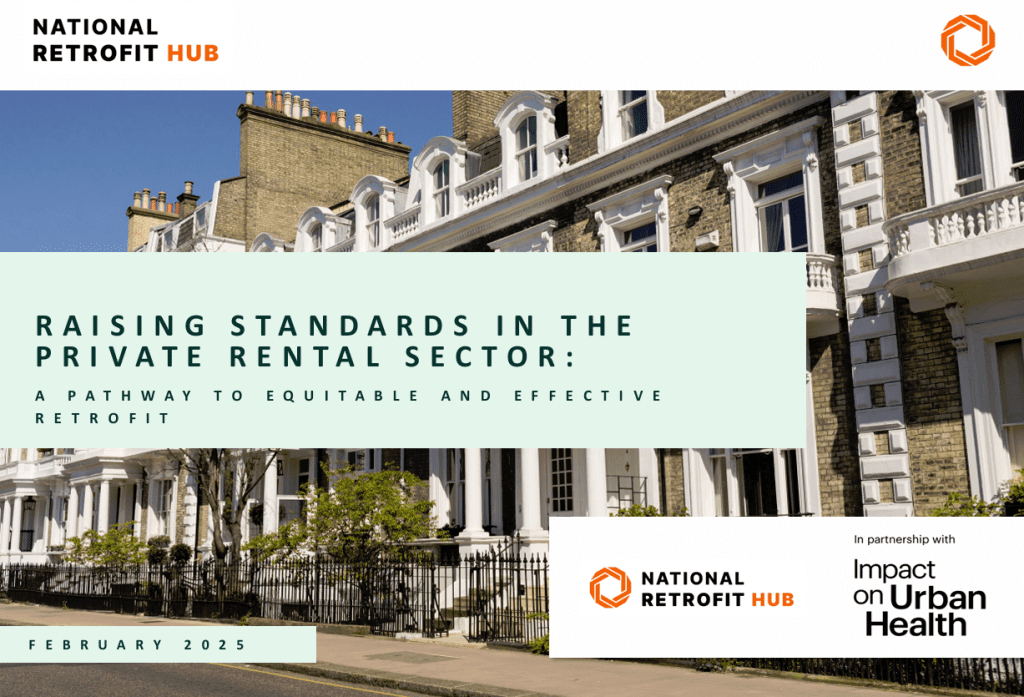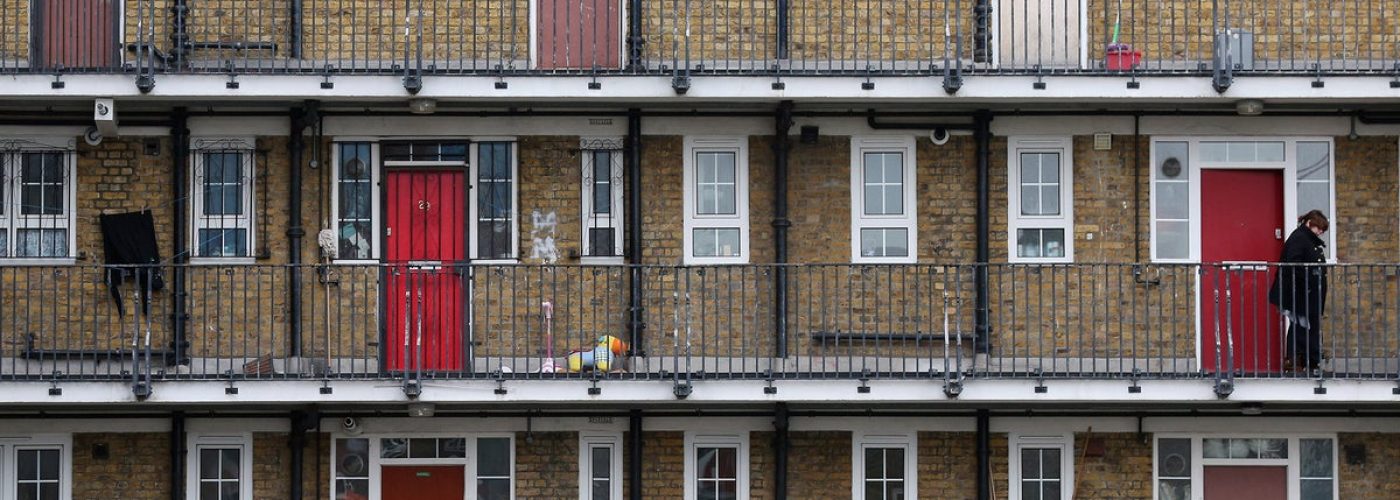The report from the National Retrofit Hub, developed in partnership with Impact on Urban Health, exposes the urgent need to improve energy efficiency in the private rental sector (PRS).
With 4.5 million households renting privately in England[1] and a shocking 1 in 4 renters living in fuel poverty[2], the report underscores the stark realities of a housing market failing its tenants and the environment.
The report delivers a clear message: without immediate action, the PRS risks falling further behind other housing sectors, leaving millions of renters in cold, inefficient homes. This report explores these challenges and proposes a supported pathway to improved housing that considers the needs of both landlords and tenants
Addressing poor living standards and fuel poverty
Millions of renters in the private rental sector are living in substandard conditions, with poorly insulated homes leaving tenants exposed to the harsh realities of fuel poverty and inequality. Currently, 1 in 4 renters[3] in England struggle to afford their energy bills, a crisis exacerbated by rising costs and the inefficiency of older properties. Many tenants face daily challenges to keep their homes warm and healthy, while landlords often lack the necessary support to make significant improvements.
“This situation highlights a systemic issue” commented Cara Holmes, National Retrofit Hub Technical Programme Manager. “The private rental sector risks falling behind other housing tenures, leaving renters trapped in a cycle of inadequate housing and energy insecurity. Tackling this problem requires a coordinated effort to raise standards, improve living conditions, and ensure fair outcomes for both tenants and landlords.”
Supporting Landlords to Drive Energy Efficiency Improvements[CH1]
The report highlights the practical challenges landlords face in balancing their financial goals with the need to improve their properties’ energy efficiency. Many landlords view their properties as long-term investments. As one landlord explained, “I got the property because it was the best investment compared to putting my money into a savings account.”
While many are committed to maintaining their properties and complying with regulations, the report reveals that landlords often see regulations as a target to meet rather than an opportunity to exceed. “If I’ve had an EPC assessment on my property and it’s below the requirements, I’d want absolute clarity on what my options are to bridge the gap between where I am and where I need to be,” said another landlord.
Financial barriers remain a significant hurdle for many. “I don’t have a mortgage, so extending it isn’t an option. The issue would be interest rates and over how many years,” one landlord noted.
The findings underline the importance of providing landlords with practical, accessible solutions to retrofit their properties effectively, ensuring they can balance their investment goals with the urgent need for energy efficiency improvements.
A call for bold action
The report calls for immediate updates to Minimum Energy Efficiency Standards (MEES), setting ambitious yet achievable targets to:
- Drive significant, high-quality retrofit activity.
- Prevent the private rental sector from falling further behind other housing tenures.
- Minimise exemptions, ensuring as many properties as possible benefit from improvements.
However, raising standards alone is not enough. Landlords need a robust package of support to enable meaningful change, including:
- Tax incentives to ease the financial burden of upgrades.
- Full-service solutions, such as on-bill schemes, that integrate financing with retrofit works.
- A central role for agents in coordinating retrofit activity, reducing costs, and aggregating demand.
To ensure tenants are not left behind, the report also calls for stronger compliance and enforcement measures, including:
- Robust tenant protections during retrofit works.
- Increased funding for local authorities to enforce regulations effectively.
- Greater awareness among tenants and landlords about rights, responsibilities, and available advice.
Join the conversation and take action
The National Retrofit Hub and Impact for Urban Health invite policymakers, landlords, and industry professionals view the report and take part in conversations about the future of energy efficiency in the private rental sector.

Building, Design & Construction Magazine | The Choice of Industry Professionals





